Dependence on the Middle East
By Ghanee Ludin
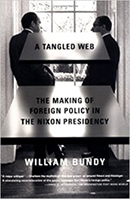
Dankwart Rustow
Dankwart A. Rustow wrote various books surrounding issues of democracy, such as Middle Eastern Political Systems and OPEC: Success and Prospects. Born in 1924 Berlin and eventually moving to Turkey and finally the U.S., Rustow received his PhD from Yale in 1951.
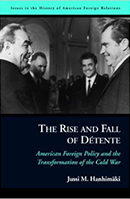
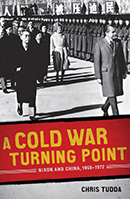
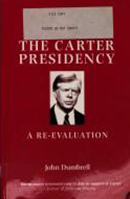
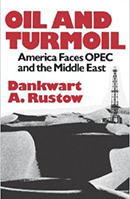
Money rules the world, and thus nothing holds more power than the 120 billion dollar global oil industry. As the oil industry has evolved into such a vast source of affluence, there is no wonder why the Middle East has become the focus of numerous nations around the world since its initial discovery of oil in 1932. According to the OPEC Annual Statistical Bulletin of 2014, “almost 81 percent of the world’s proven oil reserves are located in OPEC Member Countries, with the bulk of OPEC oil reserves in the Middle East, amounting to 66 percent of the OPEC total.”1 Rustow’s Oil and Turmoil: America Faces OPEC and the Middle East thoroughly depicts the growth of the Middle Eastern oil industry, and its increasing strength in regards to the world. Throughout history, the Middle East has evolved exponentially from a peaceful region of cultural and religious intermingling under the Ottoman Empire to the current era of crisis and devastation fueled by various political, economical, and religious differences. Beginning in the early 20th century, the West began to have growing influence on the Middle East. As time went on, the rise of Middle East oil was prevalent, and became clear the extent of power Middle Eastern oil had in regards to the United States and the world. The Yom Kippur War of 1973 is a prime example of how tensions in the Middle East could have such a significant impact on the world economy. America as a whole has become overly dependent on oil and thus is greatly impacted by actions in the Middle East. Throughout the book, readers see the Middle East’s rise to power as virtually the entire world scrambles to grab their own share of oil.
During the 1970s, the majority of the Middle East had a varied culture in which people lived in a Westernized setting of individual freedoms. Cities bustled with commercial activity, and people enjoyed various forms of entertainment and religious freedom. In contrast, the scene of the Arabian Peninsula was much different. Rural areas remained as they did centuries ago with commercial life centered around the bazaar or marketplace and daily life molded around the structure of Islam. The Middle East had had not independently grown to be Westernized; instead, modern Europeans came in with imperialist ambitions. Western influence gave rise to a region filled with turmoil “where in the latter Middle Ages, Christian European and Muslim-Middle Eastern cultures had been intimately interwoven.”2 Unfortunately, as European expansion increased exponentially, the relationships of the various people of the Middle East deteriorated and tensions quickly arose. Early Western nations during the early 20th century merely pussyfoot around the matter of imperialism in the Middle East. The British practiced an “indirect” rule in their sphere of influence in the Middle East in which traditional rulers preserved their ideals but ruled under the “advice” and “protection” of Britain and its military force. Also, the French set up a military administration with the application of the principle of “divide and rule,” in which they emphasized the religious differences of the Arab population, such as the Sunni-Muslim majority, the Shiite Muslims, and the Christian Arabs of Lebanon to create unrest and disunity among the people. The region of the Middle East has “the total area and population of the Middle East from Libya to Afghanistan and from Turkey to South Yemen are roughly the equivalent to those of the United States.”3 This area is separated by mountains, seas, and deserts. As a result, there are numerous religious and national divisions. Throughout the old Ottoman empire, these religions and nations were loosely held together in peace. But, as the West continued to increase its influence, this impact eroded and inevitable destroyed the authority of the Ottoman Empire.
Furthermore, America’s involvement in World War I, which had expanded into a world war rather than just a European conflict, led to an end to America’s indifferent relationship with the Middle East. Part of Wilson’s Fourteen points had focused on peace and freedom in the areas of the Middle East, but with America’s refusal to join the League of Nations, it may have seemed to some that the United States had obtained a declining sense of interest in the events of the Middle East. In reality that was not the case, private groups replaced the American government when dealing with the Middle East. The American oil industry had clear interests in the Middle East, and they did not wish to see the “British and French monopolize the exploitation of possible petroleum resources in Iraq or elsewhere in the region.”4 The State Department, wanted to make sure that the United States would not be put at a disadvantage when it came to Middle Eastern oil and thus two American firms that held petroleum concessions in the Middle East were made. This, in effect, tied American companies to the emerging oligopolistic network that was rising in the global oil industry.
The global oil industry grew to be an industry that influenced the entire world but was run in such a way that prices could be subject to great fluctuations. Before 1960, the global oil industry was largely ruled by a group of multinational companies known as the “Seven Sisters,” and held approximately 85 percent of the world’s oil reserves. However, in 1960, the international oil market was introduced to its “first whiff” of competition with the creation of the Organization of the Petroleum Exporting Countries (OPEC), which consisted of the countries Venezuela, Saudi Arabia, Kuwait, Iraq, and Iran. With this new found power, OPEC began to challenge the Seven Sisters in this new climate of competition. The creation of OPEC represented a collective act of authority that marked a change in the control of resources, and they made sure that oil companies could not drastically cut the price of oil. Petroleum’s great power over the world came to fruition during the 1950s and 1960s and created a time of great prosperity, harmony, and optimism, which was in part due to the creation of OPEC, “from 1960 to 1970, the aggregate income of its members had gone up from 2.2 to 7.3 billion dollars yearly.”5 By the 1970s, the United States had become increasingly dependent on foreign oil, and unfortunately, at the same time, the Middle Eastern governments began to take power over the petroleum market themselves, replacing big oil companies. Due to American political actions, Middle Eastern attitudes towards the United States were increasingly hostile and the temptation to use the “oil weapon” against the vulnerable United States was imminent.6 With the Arab Oil Embargo that occurred on October 1973, it was clear to Americans that there was a drastic need for sharp governmental action. By the 1970s, American oil showed obvious signs of overuse, and, the shift of petroleum power to the Middle Eastern governments reflected a gradual rise in international oil prices. The power of the Middle East seemed limitless as they were becoming fully independent, while the countries of the West were becoming even more economically dependent on Middle Eastern oil.
Then, the Yom Kippur War of 1973 was fought between a group of Arab states, led by Egypt and Syria, against Israel. On October 6, 1973 the Jewish Day of Atonement, or Yom Kippur, Egyptian and Syrian forces made a surprise attack against the Israelis. As the war waged on, the United States backed Israel while the Soviet Union backed the Arab nations. As a result, the Arab nations of OPEC declared an embargo on the United States causing the Energy Crisis of 1973, and by 1974, the price of oil had increased from three dollars a barrel to twelve dollars a barrel. This became know as the “First Oil Shock”. The United States was going to take another hard hit in 1979 during the wake of the Iranian Revolution. In 1979, the Pahlavi Dynasty of Iran, which was backed by the United States, was overthrown and eventually replaced with an Islamic Republic. With this, the original pro-Western attitudes were replaced with an anti-Western authoritarian government. Due to decreases in oil output in Iran, the United States experienced the “Second Oil Shock”. The price of oil per barrel rose to 40 dollars in the span of one year, leading to widespread panic and triggering a United States recession in the 1980s. Such significant effects on the world due to the events in the Middle East showed that “this risk of major catastrophe makes it imperative that the industrial oil consuming nations reduce their vulnerability to any future oil shocks…”7 The United States especially holds the responsibility of reducing its vulnerability to oil shocks, since for the last century, the U.S. has been consuming the most oil of any nation in the world.
In the year before the OPEC Revolution, the United States looked at oil as a seemingly unlimited resource, with constant and affordable prices. Energy consumption rose rapidly, and post war industries were prosperous. Citizens drove to work in gas-guzzling vehicles, and numerous household appliances, such as air-conditioners, stoves, and washing machines revolved around oil. The world was caught up in an oil craze and could not be satisfied. “In the 1960s alone, the world used up as much petroleum as had flowed in all its wells in the preceding century.”8 But with the oil crisis in 1973 and its major impact on the United States, measures had to be taken to relieve the dependency of the United States on Middle Eastern oil. One of various measures the United States took in protecting itself from the oil industry was the creation of the Strategic Petroleum Reserve in 1975 after oil supplies in 1973 were cut off. It consists of the largest supply of emergency oil in the world. In all, the United States continues to dispel notions of the Middle East’s power to use the “oil weapon” and from this moment on has continued efforts to establish tolerable relations with the Middle East and help create a region of decreasing tension.
Much of the world rests on the unsteady hands of the Middle East. The Middle East is a region filled with constant turmoil and problems due to the divisions of various people which have been coaxed together by the West. Yet, the world has grown to depend on oil controlled by the governments of the Middle East. This is where the dilemma is evident and Rustow emphasizes the need for the world— the United States especially— to become independent from the oil of the Middle East as it can and has lead to catastrophe during political tensions in the area. The First and Second Oil Shocks caused by the Yom Kippur War and the Iranian Revolution clearly showed the vulnerability of the United States. Rustow emphasizes that “the world’s dependency on oil is evidently a situation that cannot be ignored” and that under current circumstances, the United States must push to evolve.8
Dankwart A. Rustow is known as the “father of transitology”, a school of thought that studies democracy. He was born in 1924 in Berlin, moved to Turkey, and finally went to school in the United States to receive his PhD in political science from Yale. Rustow’s expertise on the key elements of democracy, gives him a valid point of view when it comes the discussion of the Middle East and its regimes, backed by the events of history. He said that only “national unity was a necessary precondition for democracy,” but without this unity, democracy was impossible.9 This is evident as the various tensions in the Middle East is primarily fueled by cultural and religious differences. As a German who has lived in Europe, the Middle East, and the United States, Rustow can view the problems of Middle Eastern oil from each perspective.
John C. Campbell of Foreign Affairs gives Oil and Turmoil: America Faces OPEC and the Middle East an overall positive review. Campbell emphasizes that when Rustow deals with the politics of oil and its various factors, he does so without bias, which would have put fault on a particular side. He says that Rustow depicts the events “in historical perspective, with a sense of proportion, and a healthy skepticism toward the self-serving statements of governments.”10 He believes that the overall book is a wholesome depiction of the problems the world encounter in the Middle East.
Stephen R. Lefevre of University of Texas at Tyler, commends Rustow’s ability to clearly describe the various factors that handed the “oil weapon” to Middle Eastern governments, and states that Rustow wisely “warns against extrapolating too boldly from the crises of the immediate past.”11 He acknowledges Rustow’s ability to give pertinent advice on the subject based on his expertise on democracy. On the other hand, Lefevre, emphasizes Rustow’s reluctance to announce the decline of Western strength saying that he “underestimates the...impact that disruptions in supply and increases in prices have had on inflation, employement, budget deficits, and the migration of American capital.”12 In total, Lefevre, recognizes the value of Rustow’s insight but also notes his difficulty to completely move away from a Western point of view.
Overall, Rustow depicts the problems the world faces when it comes to dealing with the Middle East and the overall dependency of industrial nations on oil in a straightforward and unbiased manner. Rustow separates the book into eight chapters with various subsections that relate to each other creating a book that is easy to follow. Rustow keeps the reader engaged, and the way he gives background information that explains the overall growth of power of the Middle East shows that his goal in writing the book is to bring light to the world’s problems and emphasize the need to fix it. He gives a copious amount of information in a way that develops the subject but does not overwhelm the reader. Rustow wanted the United States to focus on creating a “more peaceful Middle East of the future,” in efforts to create a world less dependent on a region of such turmoil.13
The author supports the position that the United States must change in order to maintain its strength. The 1970s were years of turbulence, with the disorder of the Middle East greatly affecting the United States in regards to politics and the economy, which may also foreshadow even greater catastrophes if the United States continues on the road of dependence on the Middle East. When Arab members of OPEC declared an embargo due to conflicts during the Yom Kippur War, this lead to the 1973 Energy Crisis that would have both short-term and long term effects on the global economy. In the United States, the crisis prompted a call to conserve energy that affected everyone, with examples such as, a national maximum highway speed limit of 55 mph through the Emergency Highway Energy Conservation Act, and a year-round daylight saving time. The United States experienced a second shock with the 1979 Energy Crisis due to decreased oil output from the Middle East during the Iranian Revolution which led to panic similar to that of 1973. The events of the 1960s served as an immediate buildup to the oil crises that occurred in the 1970s. Until 1973, oil was such a common treasure to the world “oil consumption ran at twice the rate of 1960” and oil seemed like an unlimited resource.14 Unfortunately, this infatuation with oil led the world to ruin during the 1970s.
Rustow says that “our aim for the Middle East should not be uniformity or American domination, but a pattern of peaceful pluralism— of live and let live.”15 Control and power should not be an influence when it comes to a resource so crucial to the world. The United States must act as a support rather than a reign of pressure to make the Middle East an area of unity.
Footnotes:
- Rustow, Dankwart. Oil and Turmoil: America Faces OPEC and the Middle East. Toronto: George J. McLeod Limited, 1982. 12
- Rustow, Dankwart. 56.
- Rustow, Dankwart. 84.
- Rustow, Dankwart. 97.
- Rustow, Dankwart. 109.
- Rustow, Dankwart. 148.
- Rustow, Dankwart. 153.
- Rustow, Dankwart. 189.
- Rustow, Dankwart. 211.
- Campbell, John. 2001. ForeignAffairs.com
- Lefevre, Stephen R. Rev. of Oil and Turmoil: America Faces OPEC and the Middle East. Academy of Political Science 1982: n. pag. Print.
- Lefevre, Stephen R.
- Rustow, Dankwart. 231.
- Rustow, Dankwart. 257.
- Rustow, Dankwart. 269.
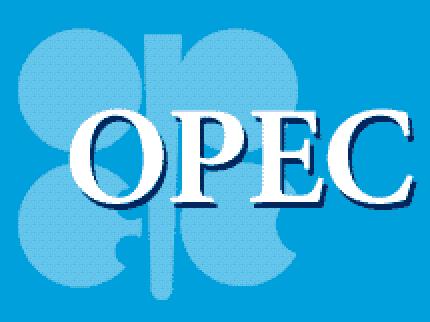
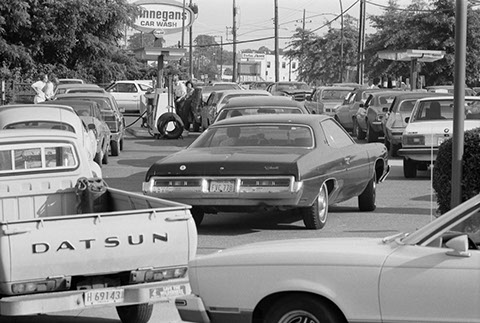
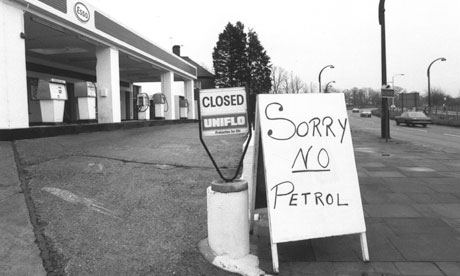
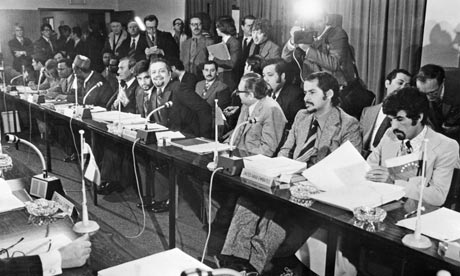
4 - 4
<
>